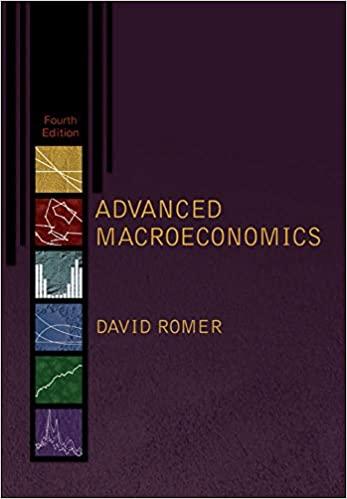6.11. Consider an economy consisting of many imperfectly competitive, pricesetting firms. The profits of the representative firm,
Question:
6.11. Consider an economy consisting of many imperfectly competitive, pricesetting firms. The profits of the representative firm, firm i, depend on aggregate output, y, and the firm’s real price, ri : πi = π(y,ri), where π22 < 0
(subscripts denote partial derivatives). Let r ∗(y) denote the profit-maximizing price as a function of y; note that r ∗(y) is characterized by π2(y,r ∗(y)) = 0.
Assume that output is at some level y0, and that firm i’s real price is r ∗(y0).
Now suppose there is a change in the money supply, and suppose that other firms do not change their prices and that aggregate output therefore changes to some new level, y1.
(a) Explain why firm i’s incentive to adjust its price is given by G = π(y1, r ∗(y1)) − π(y1,r ∗(y0)).
(b) Use a second-order Taylor approximation of this expression in y1 around y1 = y0 to show that G −π22(y0,r ∗(y0))[r ∗
(y0)]2(y1 − y0)
2/2.
(c) What component of this expression corresponds to the degree of real rigidity? What component corresponds to the degree of insensitivity of the profit function?
Step by Step Answer:







